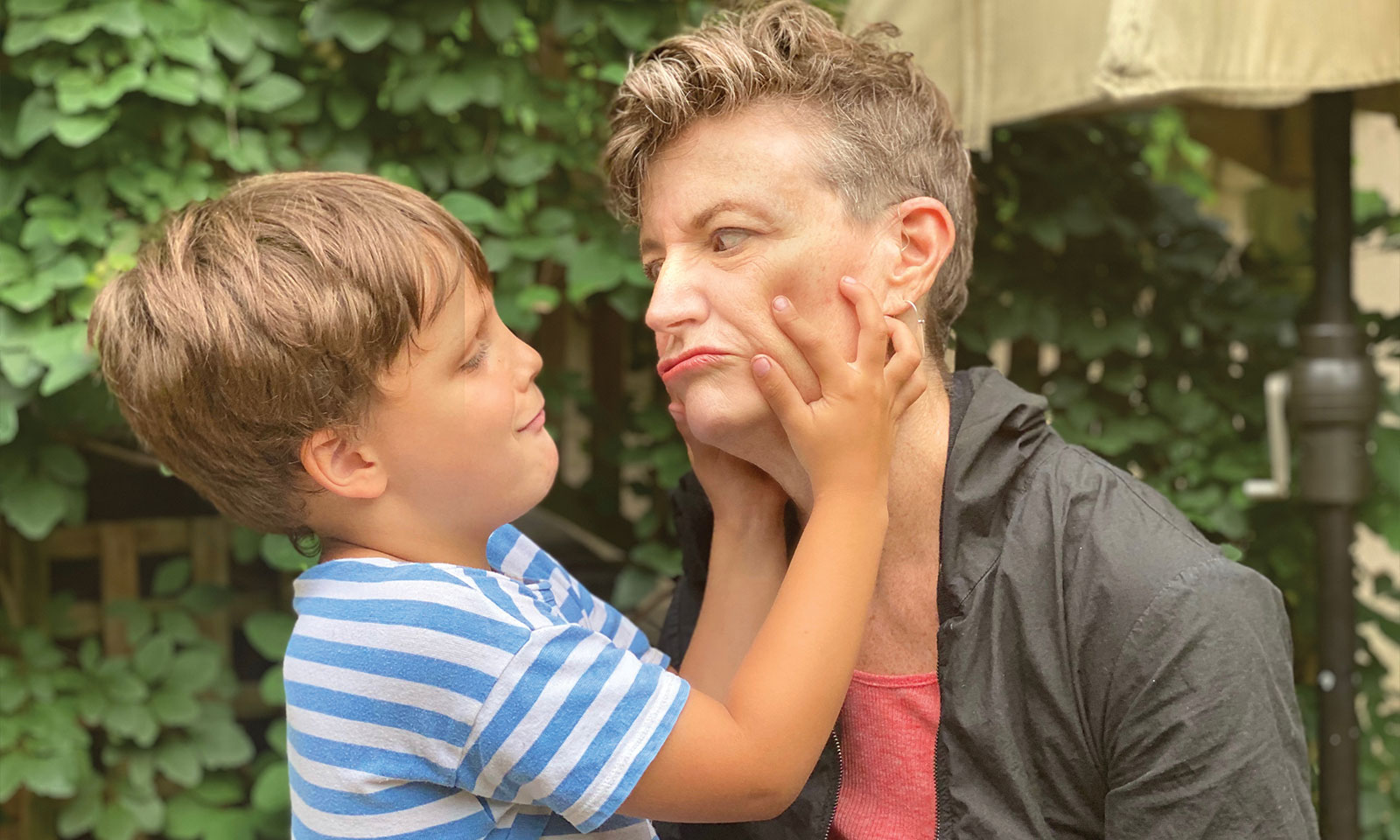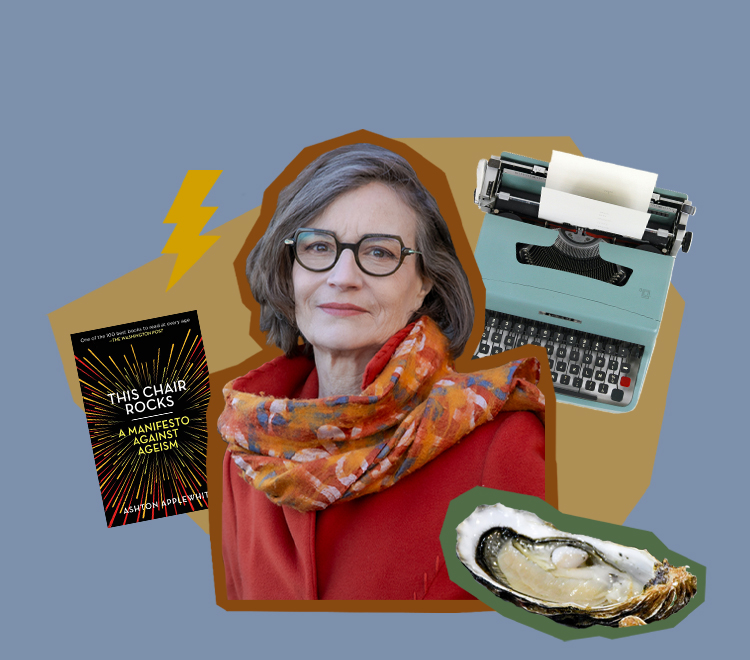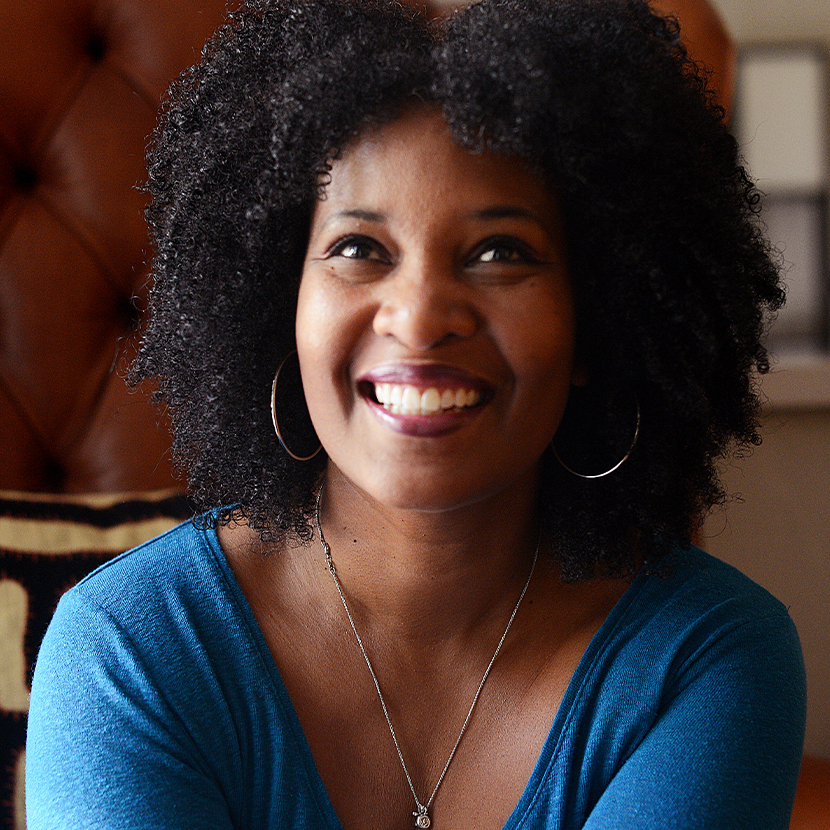Ten years ago, Brené started the Daring Interview series on her blog. It quickly became one of our favorite features. Now, we are relaunching the series and adding in a few new questions, including some from the late James Lipton, host of Inside the Actors Studio, and Smith Magazine’s Six-Word Memoir.
I first stumbled across the work of anti-ageism activist Ashton Applewhite when her 2017 TED talk, “Let’s End Ageism,” showed up in one of my social media feeds. Although I’ve never been one to fear getting older, as she shared surprisingly optimistic statistics that exploded myths about aging, it began to dawn on me that perhaps my outlook wasn’t as enlightened as I’d thought. In fact, I began to recognize the extent to which I’d been ignoring the ageist language I’d used about my own aging when she described the way she had shifted her thinking about her tricky knee:
“I stopped blaming my sore knee on being 64,” she said. “My other knee doesn’t hurt, and it’s just as old.”
Oh. Right.
Since then, I’ve learned that Ashton’s work, including her book This Chair Rocks: A Manifesto Against Ageism, has earned her many accolades, and the United Nations has credited her book with “acting as a catalyst to raise the consciousness of people around the world on what ageism is and what we can do to dismantle it.”
Ashton exemplifies courage by amplifying the conversation around what it means to get older in a world that profits from our fears and by doing so in a way that foregrounds the need to support all struggles for equal rights.
Vulnerability is . . .
For me, talking about racism. Writing about it isn’t any easier. I feel I ought to have understood this massive crime earlier in life and how I’m implicated in it. I can be head-bangingly blind to the way I, and the culture around me, center whiteness.
What role does vulnerability play in your work?
I’m in the culture-change business. Nothing changes if we stay in our comfort zones. Challenging the status quo — naming biased language or behavior, supporting people in the crosshairs, insisting that people try hard to do better — takes courage and involves risk. That means being vulnerable: to saying something I wish I hadn’t, to encountering pushback, to being “canceled” by someone I respect. I try to take those risks.
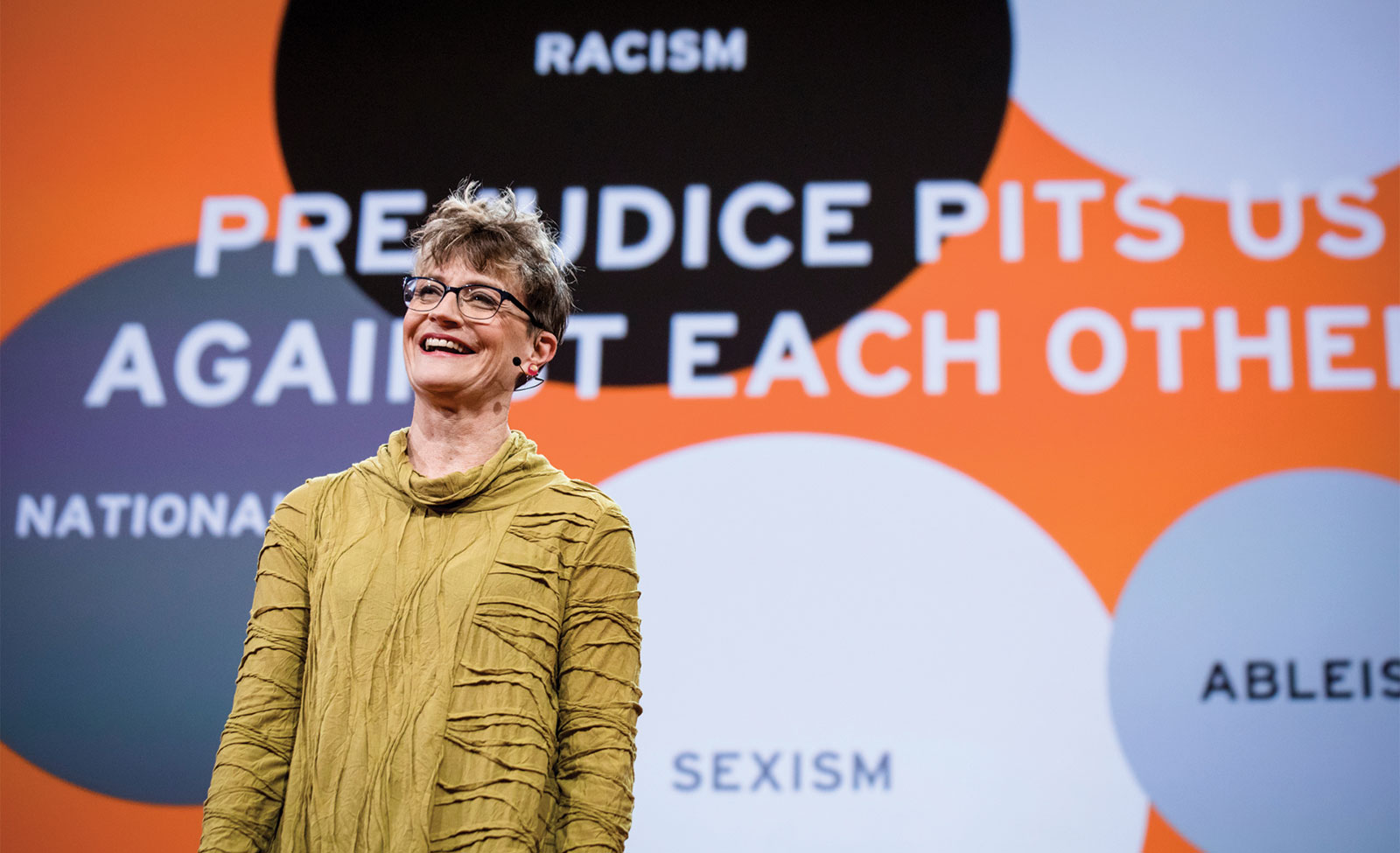
What’s something that gets in the way of your creativity, and how do you move through it?
I like thinking. Writing, not so much. It’s slow and difficult. Books are the worst — so many words, and every damn one has to find its place! My daughter once asked, “Mom, why do you write if it’s so hard?” I said, “Because when I read something I’ve written that’s really good, it makes me feel better than anything else does.”
All the usual suspects get in the way: procrastination, laziness, dread. I move through them by forcing myself to sit down, face the task, and return to it till it is done. I’m dogged AF. Ages ago, before I had any kind of following, a friend commented, “You just keep beavering away.” That’s me, beavering away.
It’s often difficult to share ourselves and our work with the world, given the reflexive criticism and mean-spiritedness that we see in our culture — especially online. What strategies do you use to show up, let yourself be seen, share your work with the world, and deal with criticism?
I’ve always been hopelessly direct. Growing older has made me more confident and less caught up in what people think of me. Secondly, my work is deeply rooted in my experiences — of ending my marriage, of entering late life. No one can take those stories away from me. They’re my truth, and that gives them power. Which is a good thing, because my work has always run against the cultural current.
I just know I have to do what I do, there’s no way I can’t, and that makes me brave. When the going gets tough, I remind myself that I am enough. That I’m doing the best I can. That no one is doing what I’m doing. For some people, it’s save the whales; for others, it’s save the clinic; for me, it’s confronting ageism — because ageism compounds every other form of oppression and because everyone, everywhere, is living longer.
The conviction that my mission matters powers me. It also provides a kind of shield. Seeing myself as a vessel or conduit for ideas more people need to be exposed to makes it easier to show up.
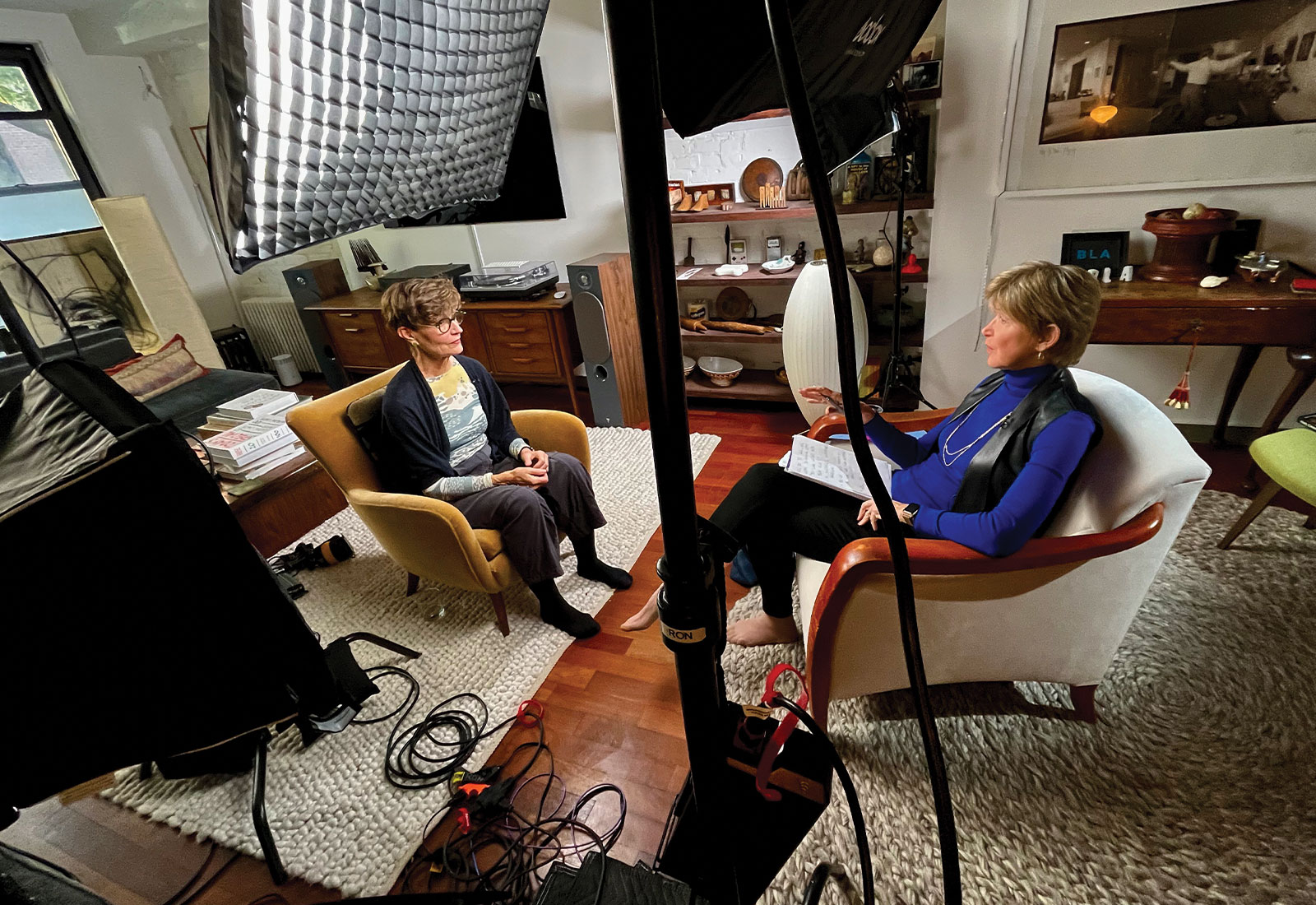
Describe a snapshot of a joyful moment in your life.
Dancing to EDM on a hot summer night surrounded by my people.
Do you have a mantra, manifesto, or favorite quote for living and loving with your whole heart?
“Huzzah!” (hat tip to the television series The Great). Also, “Comparisons are odious,” something my grandmother Joyce used to say.
What is your favorite word?
I couldn’t possibly choose. I coined olders and youngers as nouns, and I’m hoping they make their way into the lexicon.
What is your least-favorite word?
Mature. Even the way your lips move when they form the word is icky.
What sound or noise do you love?
Thunder.
What sound or noise do you hate?
Drum solos.
What is your favorite curse word?
Fucking hell.
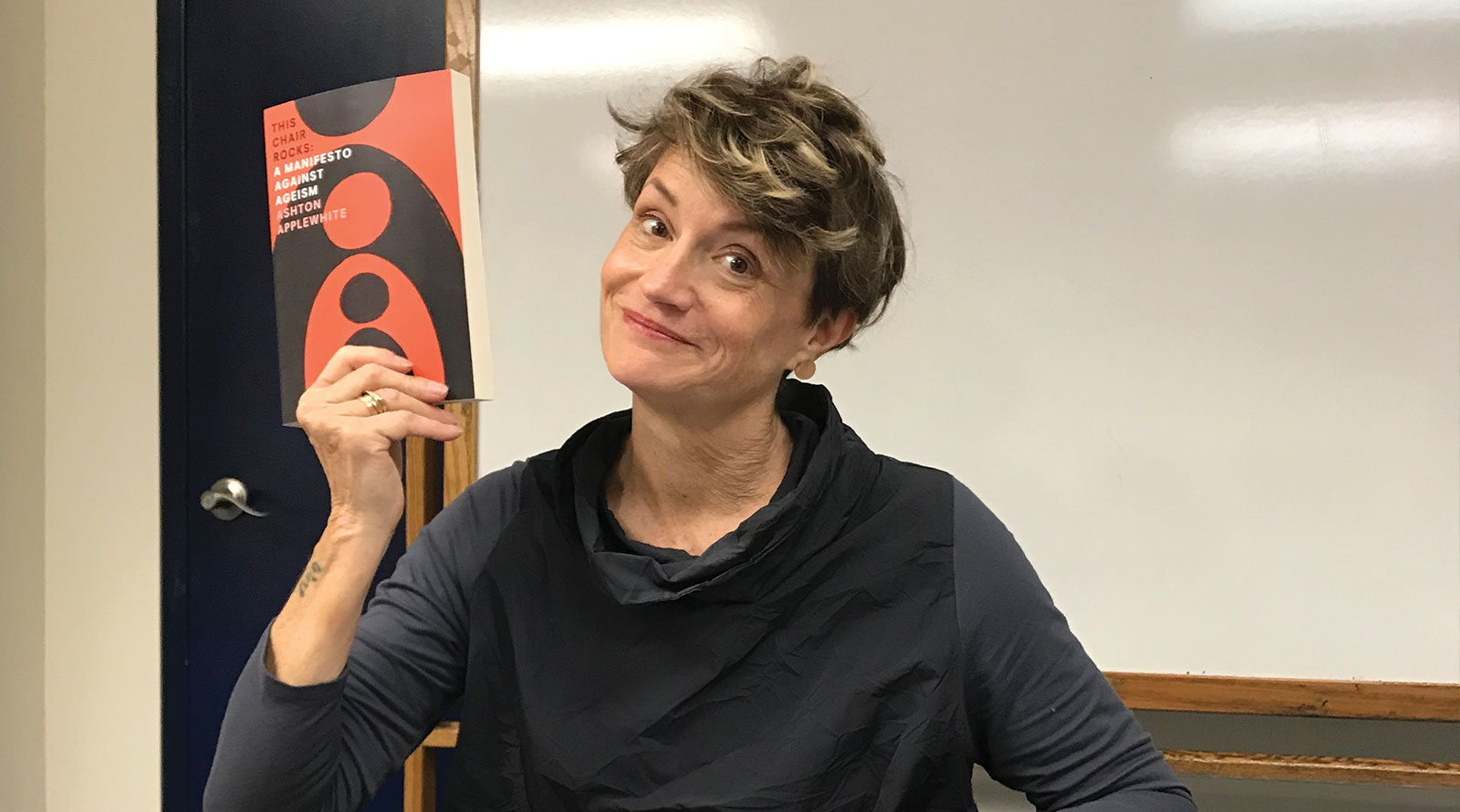
A song/band/type of music you’d risk wreck and injury to turn off when it comes on?
Christmas music in November.
Favorite show?
Depends on the week.
Favorite movie?
Me and You and Everyone We Know.
What are you grateful for today?
I’m grateful I didn’t have to wake to an alarm. I’m grateful to have hit my stride, especially so late in life, but that’s not a “today” answer and also feels self-congratulatory. So I’m gonna stick with the alarm unless you advise otherwise. It’s the truth; sleeping until you wake up is one of life’s great luxuries.
If you could have anything put on a T-shirt, what would it be?
A mirror.
Favorite meal?
Oysters, straight from the sea.
A talent you wish you had?
I wish I played a musical instrument. Trumpet or sax.
Favorite song/band?
“Music Is the Answer,” by Celeda and Danny Tenaglia.
What’s on your nightstand?
A begonia, an iPad, two novels, Kleenex, and my super-sexy night guard.
What’s something about you that would surprise us?
I don’t like school.
Your six-word memoir . . .
It Just Keeps Getting More Interesting.
Seeing myself as a vessel or conduit for ideas more people need to be exposed to makes it easier to show up.
